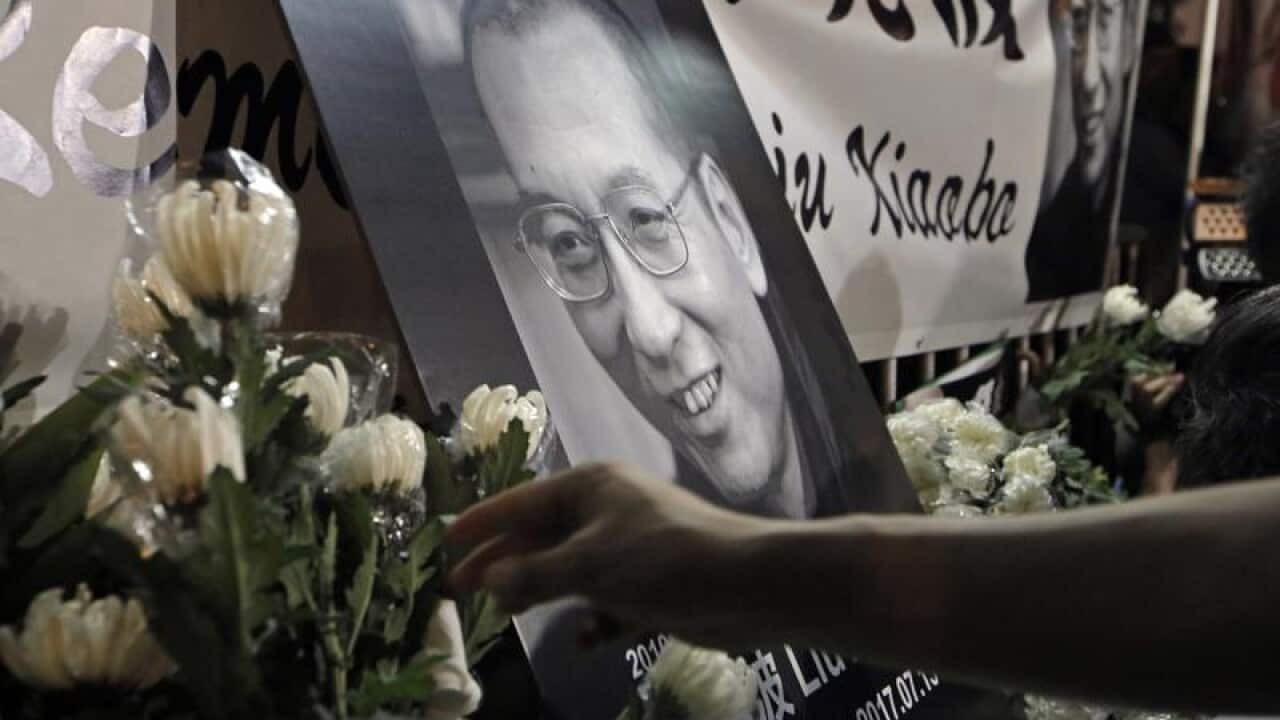As tributes rolled in for China's most famous political prisoner, a newspaper published by the ruling Communist Party dismissed late Nobel Peace Prize laureate Liu Xiaobo as a pawn of the West whose legacy will soon fade.
Liu died Thursday of liver cancer while serving an 11-year sentence for incitement to subvert state power. He was 61.
Australia's foreign minister Julie Bishop joined other world leaders in mourning the news, highlighting Liu's "long and non-violent struggle" for fundamental human rights in China.
She also called on China to remove all restrictions on the movement of his wife Liu Xia, an artist and poet who has lived under house arrest for years ever though she has not been convicted of any crime.
However in its editorial headlined "Liu Xiaobo a victim led astray by West", the Global Times said he lived a "tragic life" because he sought to confront Chinese mainstream society with outside support,.
"Liu's last days were politicised by the forces overseas. They used Liu's illness as a tool to boost their image and demonise China," the paper said.
"The West has bestowed upon Liu a halo, which will not linger," it said. "By granting him the Nobel Prize, the West has 'kidnapped' Liu. However, the West only puts a halo on those useful to them."
US President Donald Trump, German Chancellor Angela Merkel and French President Emmanuel Macron were among other Western leaders offering praise for Liu.
Trump's spokesman Sean Spicer called Liu a "poet, scholar, and courageous advocate," who "dedicated his life to the pursuit of democracy and liberty."
Liu rose to prominence during the 1989 pro-democracy protests centred in Beijing's Tiananmen Square, and became one of hundreds of Chinese imprisoned for crimes linked to the demonstrations after they were crushed by the military. It was the first of four imprisonments.
His last was for co-authoring Charter 08, a document circulated in 2008 that called for more freedom of expression, human rights and an independent judiciary.
He was in prison when he was awarded the Nobel in 2010 by a committee that lauded Liu's "long and non-violent struggle for fundamental human rights in China."
The government condemned the award as political farce, put Liu Xia under house arrest and even suspended a trade deal with Norway to punish the country where the prizes are awarded.
In recent days, supporters and foreign governments urged China to allow him to be treated for cancer abroad, but Chinese authorities insisted he was receiving the best care possible.
Liu is only the second Nobel Peace Prize winner to die in prison. The first, Carl von Ossietzky, died from tuberculosis in Germany in 1938 while serving a sentence for opposing Adolf Hitler's Nazi regime.
Share

